Kyeonghyun Lee
Self-Cascaded Diffusion Models for Arbitrary-Scale Image Super-Resolution
Jun 09, 2025Abstract:Arbitrary-scale image super-resolution aims to upsample images to any desired resolution, offering greater flexibility than traditional fixed-scale super-resolution. Recent approaches in this domain utilize regression-based or generative models, but many of them are a single-stage upsampling process, which may be challenging to learn across a wide, continuous distribution of scaling factors. Progressive upsampling strategies have shown promise in mitigating this issue, yet their integration with diffusion models for flexible upscaling remains underexplored. Here, we present CasArbi, a novel self-cascaded diffusion framework for arbitrary-scale image super-resolution. CasArbi meets the varying scaling demands by breaking them down into smaller sequential factors and progressively enhancing the image resolution at each step with seamless transitions for arbitrary scales. Our novel coordinate-guided residual diffusion model allows for the learning of continuous image representations while enabling efficient diffusion sampling. Extensive experiments demonstrate that our CasArbi outperforms prior arts in both perceptual and distortion performance metrics across diverse arbitrary-scale super-resolution benchmarks.
Gradient-free Decoder Inversion in Latent Diffusion Models
Sep 27, 2024
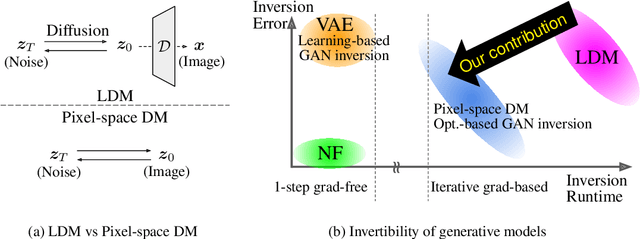
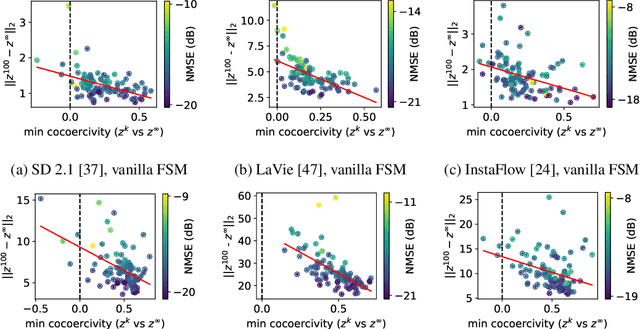

Abstract:In latent diffusion models (LDMs), denoising diffusion process efficiently takes place on latent space whose dimension is lower than that of pixel space. Decoder is typically used to transform the representation in latent space to that in pixel space. While a decoder is assumed to have an encoder as an accurate inverse, exact encoder-decoder pair rarely exists in practice even though applications often require precise inversion of decoder. Prior works for decoder inversion in LDMs employed gradient descent inspired by inversions of generative adversarial networks. However, gradient-based methods require larger GPU memory and longer computation time for larger latent space. For example, recent video LDMs can generate more than 16 frames, but GPUs with 24 GB memory can only perform gradient-based decoder inversion for 4 frames. Here, we propose an efficient gradient-free decoder inversion for LDMs, which can be applied to diverse latent models. Theoretical convergence property of our proposed inversion has been investigated not only for the forward step method, but also for the inertial Krasnoselskii-Mann (KM) iterations under mild assumption on cocoercivity that is satisfied by recent LDMs. Our proposed gradient-free method with Adam optimizer and learning rate scheduling significantly reduced computation time and memory usage over prior gradient-based methods and enabled efficient computation in applications such as noise-space watermarking while achieving comparable error levels.
On Exact Inversion of DPM-Solvers
Nov 30, 2023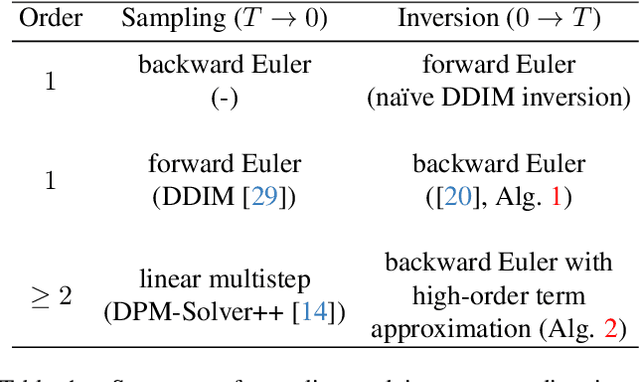
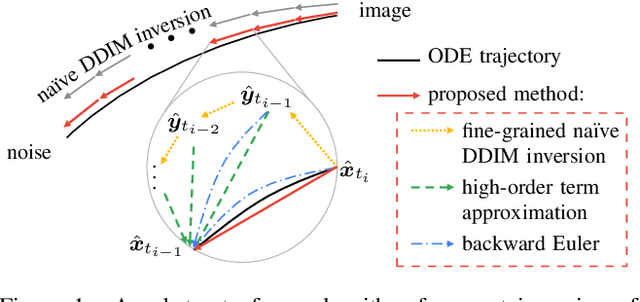
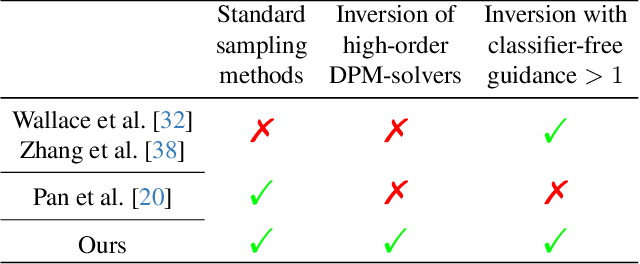
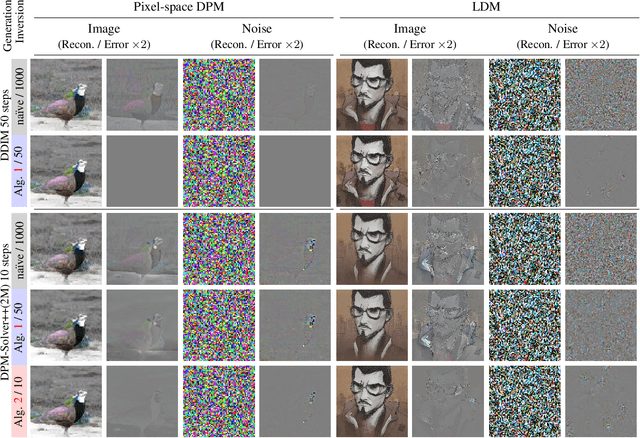
Abstract:Diffusion probabilistic models (DPMs) are a key component in modern generative models. DPM-solvers have achieved reduced latency and enhanced quality significantly, but have posed challenges to find the exact inverse (i.e., finding the initial noise from the given image). Here we investigate the exact inversions for DPM-solvers and propose algorithms to perform them when samples are generated by the first-order as well as higher-order DPM-solvers. For each explicit denoising step in DPM-solvers, we formulated the inversions using implicit methods such as gradient descent or forward step method to ensure the robustness to large classifier-free guidance unlike the prior approach using fixed-point iteration. Experimental results demonstrated that our proposed exact inversion methods significantly reduced the error of both image and noise reconstructions, greatly enhanced the ability to distinguish invisible watermarks and well prevented unintended background changes consistently during image editing. Project page: \url{https://smhongok.github.io/inv-dpm.html}.
 Add to Chrome
Add to Chrome Add to Firefox
Add to Firefox Add to Edge
Add to Edge